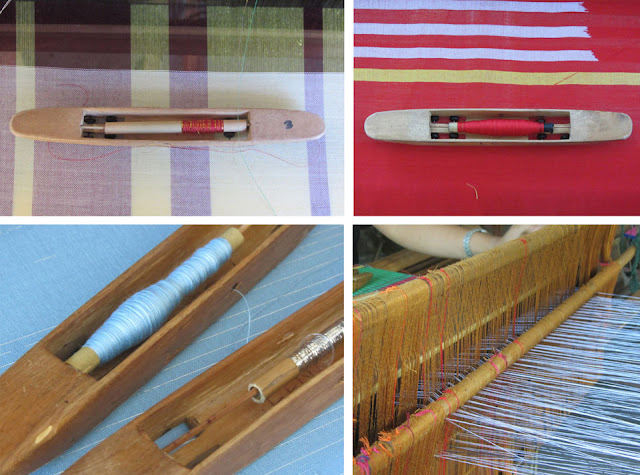Farmers push for organic farming to ensure food security and safety
With the entry of products that have genetically-modified organisms (GMOs) when trade liberalization is implemented in 2015, Filipino farmers push for organic farming and encourage the support of the public by buying organic produce in order to ensure food security and food safety.
“If we do not unite against these market forces, like if we go on our own ways, we will not succeed. We have to be organized,” said Dr. Chito Medina, national coordinator of Magsasaka at Siyentipiko para sa Pag-unlad ng Agrikultura (Masipag) during their conference Siyentipiko para sa Pag-unlad ng Agrikultura (Masipag) held the conference “Magsasaka-Siyentista Haligi ng Likas-Kayang Pag-unlad; Kumprensya Ukol sa mga Hamon ng Pagsasakatuparan ng Organikong Agrikultura sa Pilipinas” held at the Central Philippine University last week.
To inspire their fellow farmers, some shared how ‘bayanihan’ and organic farming have helped them ensure food security and safety in their communities.
Maximo Narvasa, president of the Mindagat Sustainable Farmers Association in Brgy. Mindagat, Malitbog, Bukidnon and a father to 13 children, shared that he was into chemical farming for 15 years.
“Our land was destroyed by chemicals. Not only that, the expenses in chemical fertilizer, oil and others have put me in debt until I lost my land. If only I did organic farming in those 15 years, I would be enjoying profits by now,” he said.
Learning from such painful lesson, he and his fellow farmers in the area ventured into the organic and diversified farming system.
They implemented inter-cropping, agro-forest and aqua-culture, adlai production, income generating projects like herb making and upland rice production through a good leadership and strong participation from common farmers.
Meanwhile, Mamerto Pado, president of the Bayanihan in Veneracion, Pamplona, Camarines Sur said the first thing they did was to battle landlessness by asserting their rights against landowners.
“We urged changes in policies and fought for our rights as tenants,” he said.
In an audio-visual presentation, one farmer lamented that he did not enjoy the profits from his produce because oil and chemical fertilizer were very expensive. “Lugi kami,” he said.
“Then, we discovered that Mamerto is into organic farming so we followed it. We realized that we can actually enjoy profits from organic farming. Daku ang na-ani namon,” the farmer said.
Pado said he engaged in chicken production until there was enough to distribute among the members. “This is to avoid inbreeding. Nagpalitan lang kaming poultry owners,” he said.
The group also lobbied against the use of GMOs in their town through the Sangguniang Bayan and such was granted.
NOT AN ANSWER TO FOOD SECURITY
Medina stressed that GMOs are not the answer to food security.
“GMO technology is a tool for consolidation and control of agriculture and food that conflicts with the goal of food security. GMO technology is detrimental to the well-being of humans and results to dependence on specialized technology controlled by biotech corporations. If you buy the GMO seeds, the seeds will make you buy more,” he explained.
“Under a corporate food system, the flow of food is from areas of poverty to areas of wealth and abundance,” he said, citing there are 1.3 billion overweight people in the north like developing countries while there are 1.02 billion hungry people and 1 billion people with micronutrient deficiency in the south where the Philippines is a part.
“This is no longer agriculture but agribusiness. That is no longer the farmer’s business. If is into GMO farming, lugi ang mga farmers. It results to landlessness kasi mas malaki ang gastos kesa kita,” he said.
“Why should we push for organic farming? It’s because it is the most sustainable farming system, it avoids the use of artificial and hazardous chemicals and GMOs, it reduces dependence on non-renewable sources, it mitigates climate change by storing carbon in the soil and it protects the livelihood of many people because an equitable rural economy promotes inclusive economic development,” Medina concluded.
TOO LATE?
Manny Olanday, Department of Agriculture rice program coordinator said farmers have to accept the painful fact that the Philippines, by 2015, will have to open its doors to international market.
“We have become a member of the World Trade Organization when former President Fidel Ramos signed the agreement. So, we have to compete with our Asean neighbours,” he said.
He lamented that it was only at this latter time that the DA is starting its safety nets like irrigation projects in order to protect the farmers. “Dapat sang una pa sang gin-sign ang WTO ang pag-start support sa mga farmers,” he said.
“We have to face reality. We have to be competitive. Push for the support for organic farming and products, educate consumers because they are the ones dictating us. Sadly, they don’t like organic food, they prefer chemical-based ones. The doctors are happy because people will get sick,” he concluded.*Marie Katherine Villalon
“If we do not unite against these market forces, like if we go on our own ways, we will not succeed. We have to be organized,” said Dr. Chito Medina, national coordinator of Magsasaka at Siyentipiko para sa Pag-unlad ng Agrikultura (Masipag) during their conference Siyentipiko para sa Pag-unlad ng Agrikultura (Masipag) held the conference “Magsasaka-Siyentista Haligi ng Likas-Kayang Pag-unlad; Kumprensya Ukol sa mga Hamon ng Pagsasakatuparan ng Organikong Agrikultura sa Pilipinas” held at the Central Philippine University last week.
To inspire their fellow farmers, some shared how ‘bayanihan’ and organic farming have helped them ensure food security and safety in their communities.
Maximo Narvasa, president of the Mindagat Sustainable Farmers Association in Brgy. Mindagat, Malitbog, Bukidnon and a father to 13 children, shared that he was into chemical farming for 15 years.
“Our land was destroyed by chemicals. Not only that, the expenses in chemical fertilizer, oil and others have put me in debt until I lost my land. If only I did organic farming in those 15 years, I would be enjoying profits by now,” he said.
Learning from such painful lesson, he and his fellow farmers in the area ventured into the organic and diversified farming system.
They implemented inter-cropping, agro-forest and aqua-culture, adlai production, income generating projects like herb making and upland rice production through a good leadership and strong participation from common farmers.
Meanwhile, Mamerto Pado, president of the Bayanihan in Veneracion, Pamplona, Camarines Sur said the first thing they did was to battle landlessness by asserting their rights against landowners.
“We urged changes in policies and fought for our rights as tenants,” he said.
In an audio-visual presentation, one farmer lamented that he did not enjoy the profits from his produce because oil and chemical fertilizer were very expensive. “Lugi kami,” he said.
“Then, we discovered that Mamerto is into organic farming so we followed it. We realized that we can actually enjoy profits from organic farming. Daku ang na-ani namon,” the farmer said.
Pado said he engaged in chicken production until there was enough to distribute among the members. “This is to avoid inbreeding. Nagpalitan lang kaming poultry owners,” he said.
The group also lobbied against the use of GMOs in their town through the Sangguniang Bayan and such was granted.
NOT AN ANSWER TO FOOD SECURITY
Medina stressed that GMOs are not the answer to food security.
“GMO technology is a tool for consolidation and control of agriculture and food that conflicts with the goal of food security. GMO technology is detrimental to the well-being of humans and results to dependence on specialized technology controlled by biotech corporations. If you buy the GMO seeds, the seeds will make you buy more,” he explained.
“Under a corporate food system, the flow of food is from areas of poverty to areas of wealth and abundance,” he said, citing there are 1.3 billion overweight people in the north like developing countries while there are 1.02 billion hungry people and 1 billion people with micronutrient deficiency in the south where the Philippines is a part.
“This is no longer agriculture but agribusiness. That is no longer the farmer’s business. If is into GMO farming, lugi ang mga farmers. It results to landlessness kasi mas malaki ang gastos kesa kita,” he said.
“Why should we push for organic farming? It’s because it is the most sustainable farming system, it avoids the use of artificial and hazardous chemicals and GMOs, it reduces dependence on non-renewable sources, it mitigates climate change by storing carbon in the soil and it protects the livelihood of many people because an equitable rural economy promotes inclusive economic development,” Medina concluded.
TOO LATE?
Manny Olanday, Department of Agriculture rice program coordinator said farmers have to accept the painful fact that the Philippines, by 2015, will have to open its doors to international market.
“We have become a member of the World Trade Organization when former President Fidel Ramos signed the agreement. So, we have to compete with our Asean neighbours,” he said.
He lamented that it was only at this latter time that the DA is starting its safety nets like irrigation projects in order to protect the farmers. “Dapat sang una pa sang gin-sign ang WTO ang pag-start support sa mga farmers,” he said.
“We have to face reality. We have to be competitive. Push for the support for organic farming and products, educate consumers because they are the ones dictating us. Sadly, they don’t like organic food, they prefer chemical-based ones. The doctors are happy because people will get sick,” he concluded.*Marie Katherine Villalon




